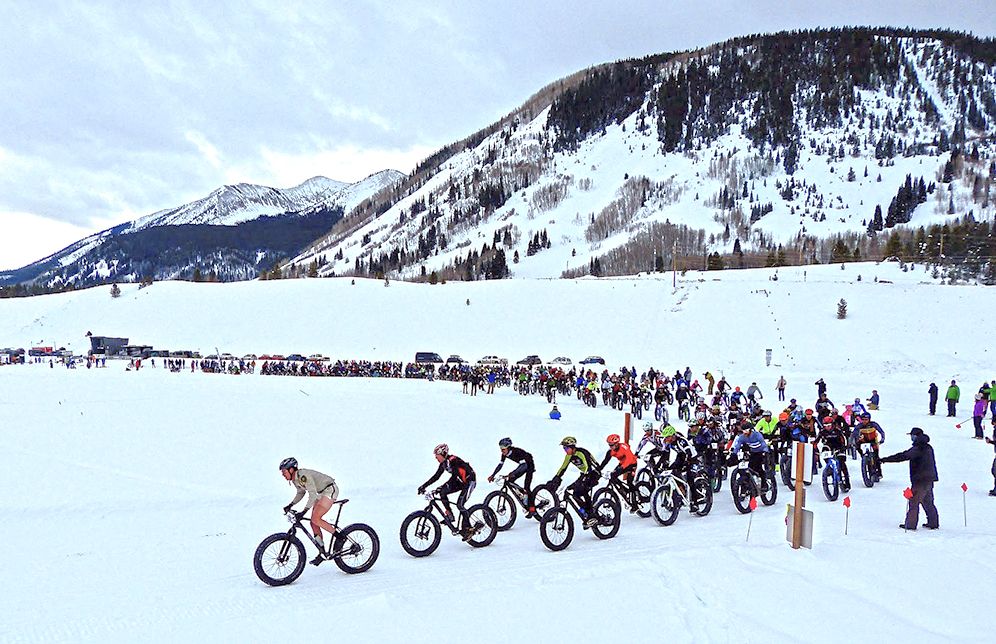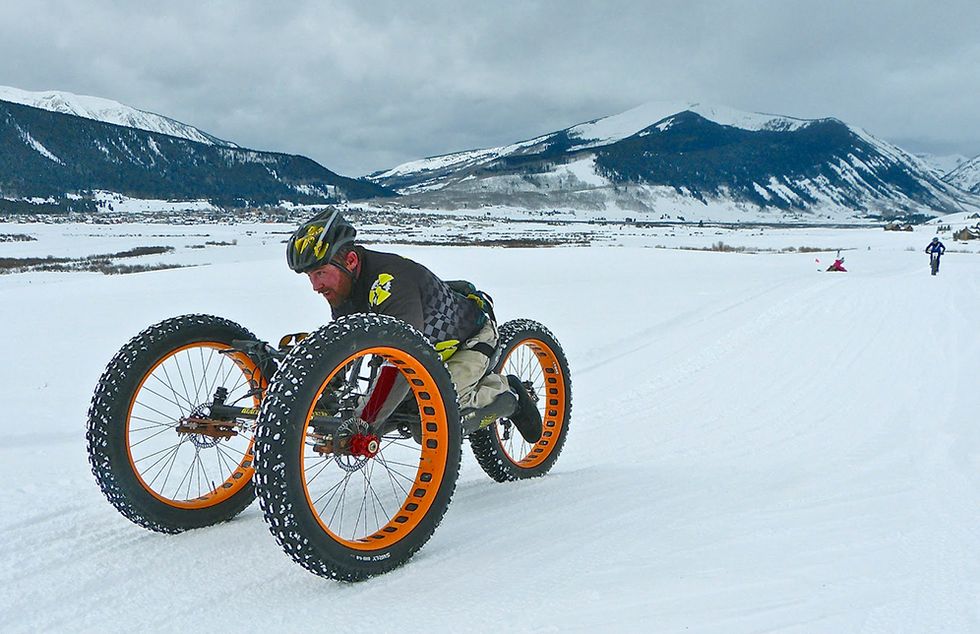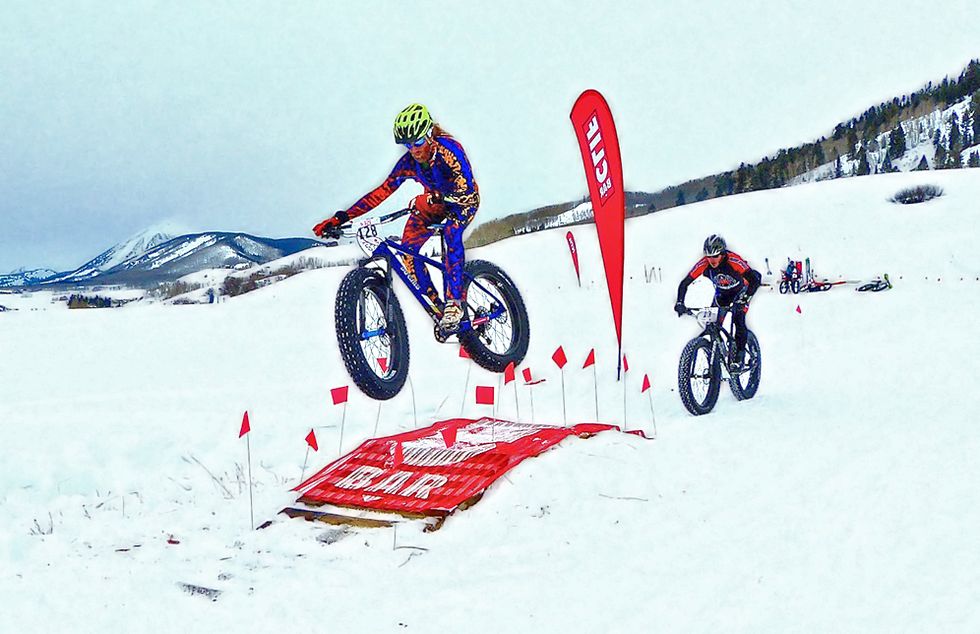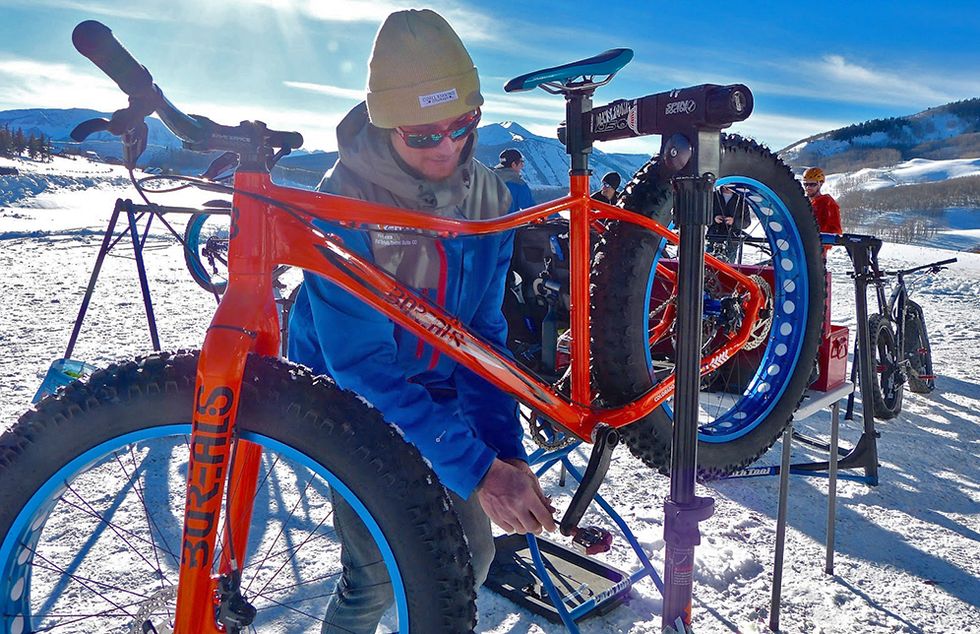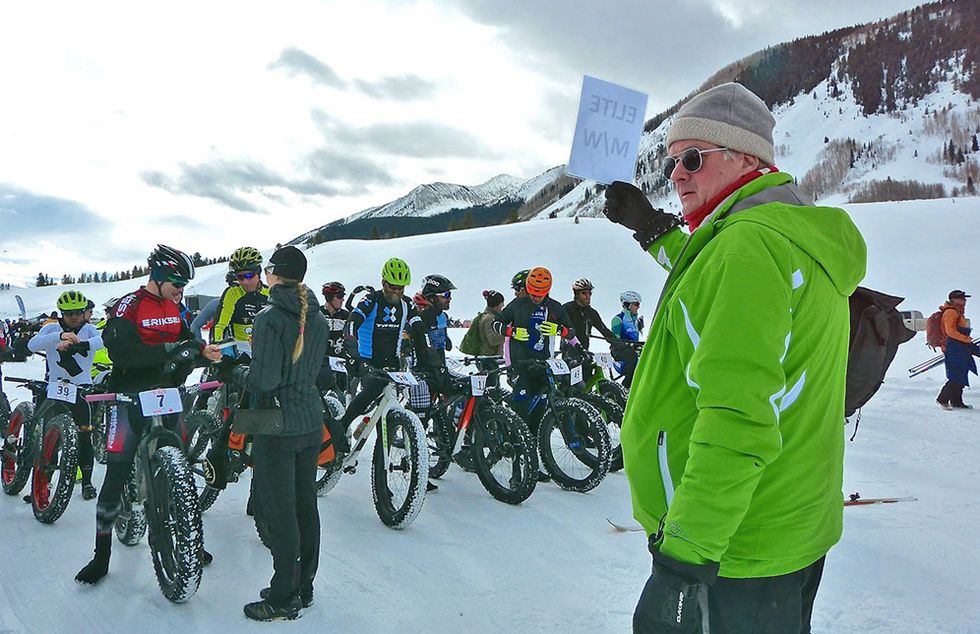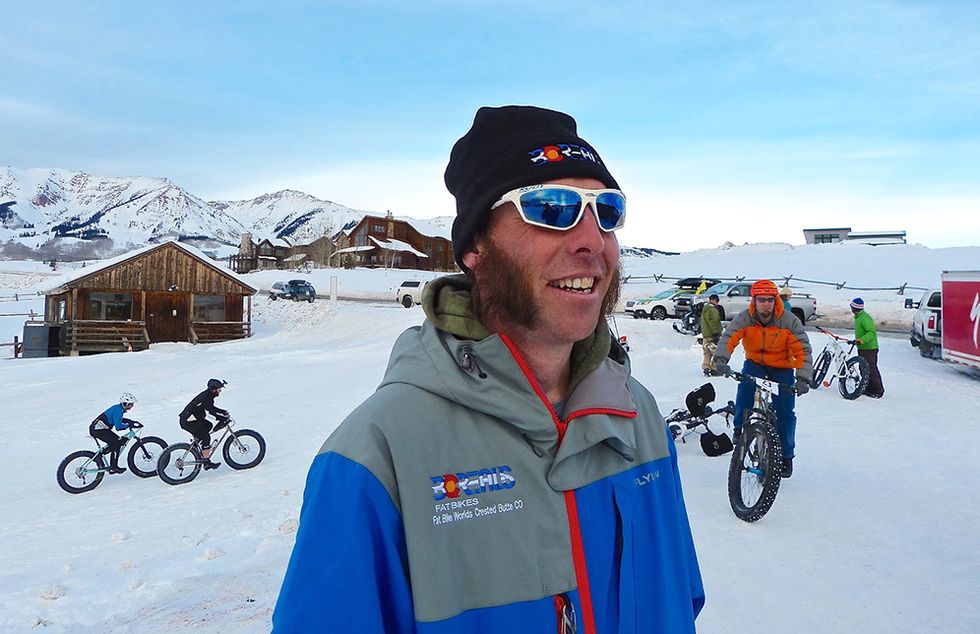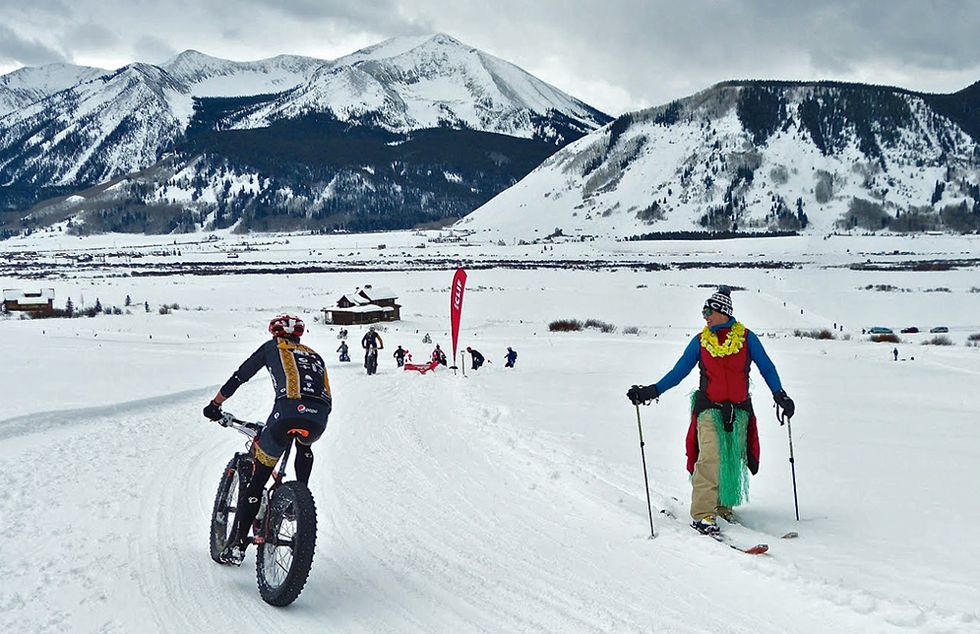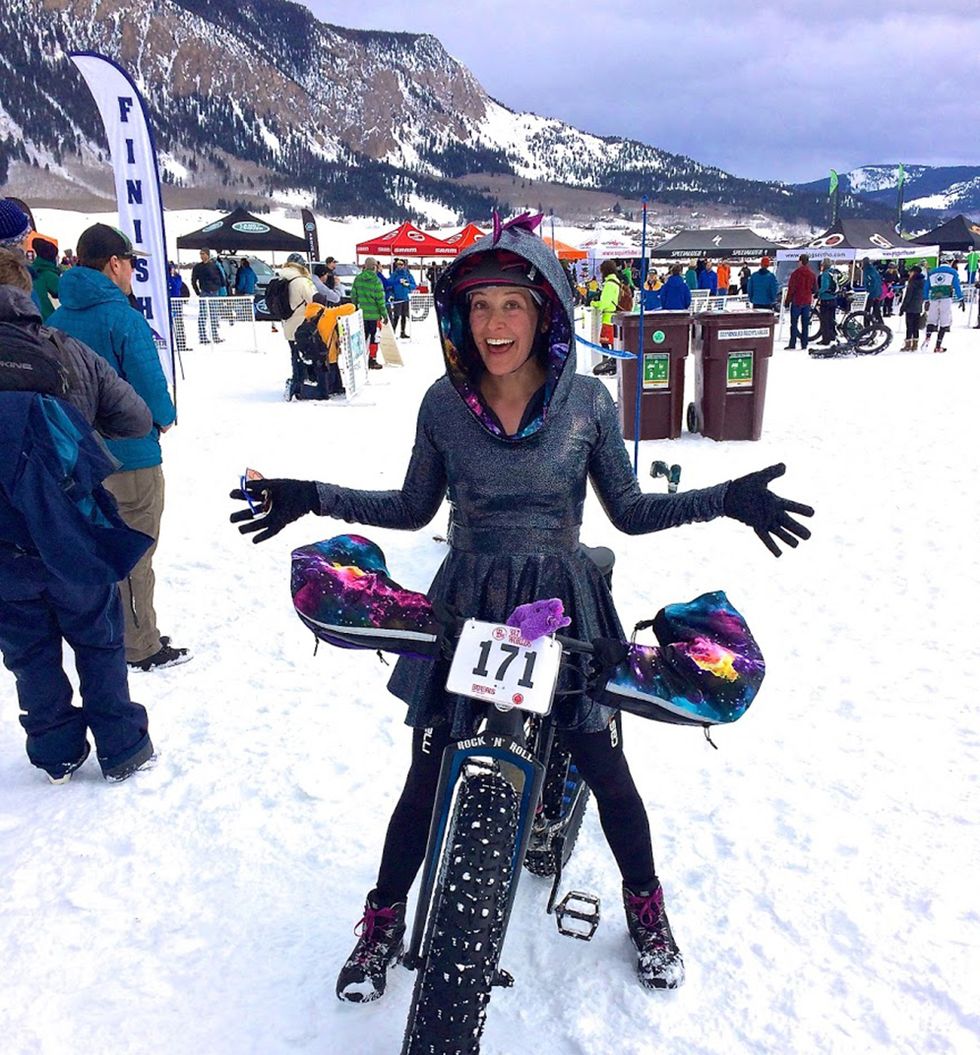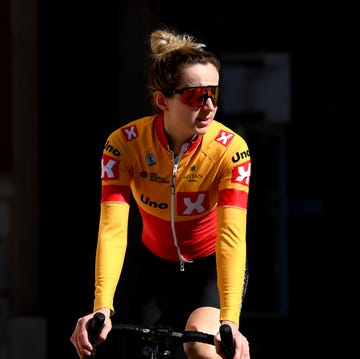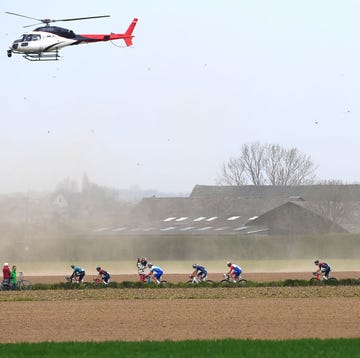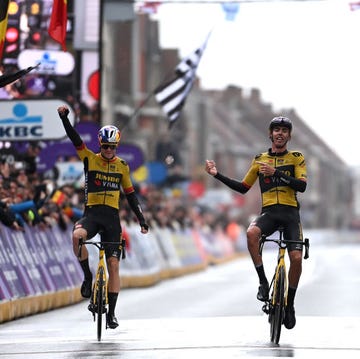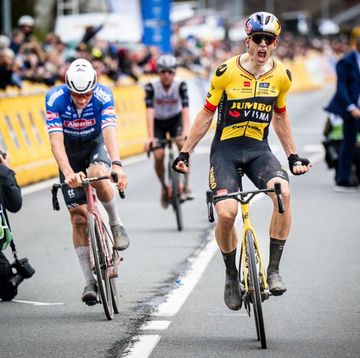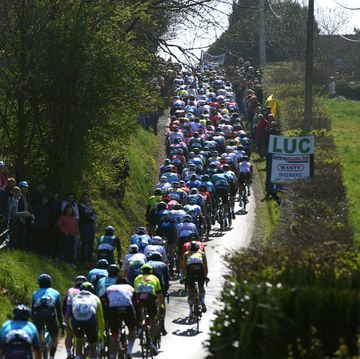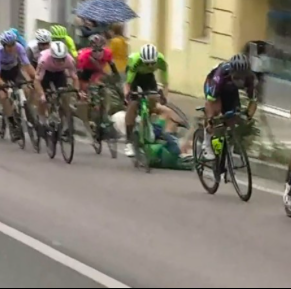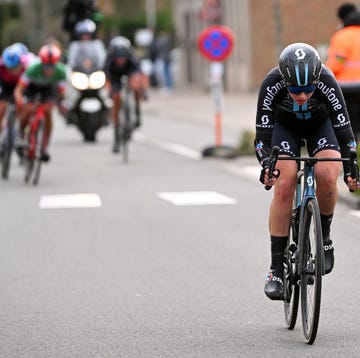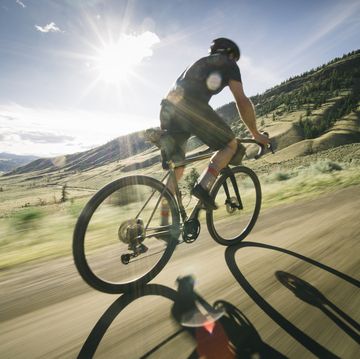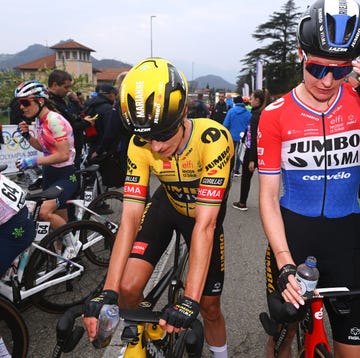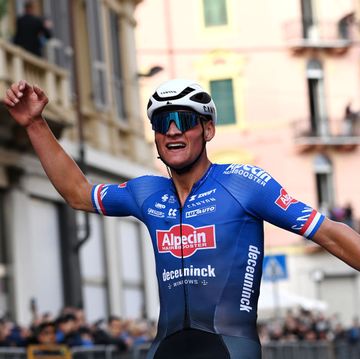Fat bikes are officially no longer just for play. Hundreds of cyclists descended upon Crested Butte, Colorado, recently for the inaugural Fat Bike World Championships: a five-day festival of races, rides, panel discussions, a vendor expo, merch, swag, and copious free beer.
Mountain bikes equipped with extra-wide tires—fat-bike tires range from 3.7 inches to a clownish 5 inches, depending on season and conditions—make riding on snow easier, but not necessarily easy. Still, the rigs have added a whole new season to the pedaling calendar and become the fastest-growing category in the cycling industry. Quality Bicycle Products, parent company to fat bike-pioneering brands Surly and Salsa, claims to have sold 50,000 fatties since 2005 and, according to the Bicycle Products and Suppliers Association, fat bike sales grew 44 percent between 2013 and 2014, resulting in a whopping 36,865 bikes sales that year.
The unsanctioned Fat Bike Worlds is less similar to a UCI World Cup than it is to, say, the Single Speed Cyclocross World Championships (SSCXWC), a 17-year-old event held at rotating venues, where winners are tattooed with the SSCXWC logo and presented pig fetuses stuffed in mason jars. There were no pig fetuses at FBW, but there was a cattle brand with the FBW logo, heating up over a propane stove at the finish corral—an optional bonus for winners.
More From Bicycling

I arrived a day before the main event—a 25-mile cross-country race—and a day after a shorter, warm-up competition at a network of cross-country ski trails west of town. Seventy-five people showed up for the warm-up race on Thursday, which went well until the sun softened the snow on a steep hillside and made for lots of wrecks. One rider cracked three ribs; another snapped a clavicle. Regardless, the stoke remained high.
“People were cratered everywhere,” says Dave Ochs, director of the Crested Butte Chamber of Commerce and founder of Fat Bike Worlds (FBW). Ochs is young, energetic, and has shorn his facial hair into an impressive pair of muttonchops. “One bike must have done, like, three flips in the air. It was awesome!”
At the vendor expo, I talked to Kent Adams, a rider from Hayward, Wisconsin, who has developed a grooming machine specifically for fat-bike snow trails. “How did Crested Butte get the World Championships, anyway?” Adams wondered. “In Hayward, we put on the Fat Bike Birkie and have to cap it at 1,000.” About 250 racers had signed up for Saturday’s competition at FBW.
“We just sort of claimed it,” Dave Ochs told me later, adding that he plans to host Fat Bike Champs again. “We saw what was happening with fat bikes and asked, do we want to be first, or last? This town loves mountain biking, so we embraced it.”
On Friday, organizers hosted a summit to discuss the sport’s growth, as well as its growing pains—namely, access issues. Regional public land managers from the US Forest Service and Bureau of Land Management showed up to comment and listen, concluding, essentially, that the sport is so new that it isn’t clear what policies and restrictions apply. Fat-bikers, on the other hand, are still figuring out which trails provide optimal riding: Established Nordic-ski centers? Winter singletrack? Lift-served downhill? All of the above?
After the summit, which raised a lot of questions but answered few (several people compared fat-biking with ‘80s-era snowboarding: another sport that was met with pushback at the outset), everyone adjourned to the on-snow bike demo. It was a crisp, bluebird afternoon, and the crowd seemed to be having a great time checking out rigs from Specialized, Scott, and FBW’s title sponsor, Borealis, a Colorado Springs-based company that makes sleek, beautiful carbon fat bikes, the top-end model of which weighs in at a svelte 22 pounds.
The marquee race was scheduled for 11AM. Saturday, and Ochs was concerned about the forecast, which called for a foot of snow. Fat bikes roll great on packed trails, but tend to flounder in fresh pow. The snow held off, and the race started on schedule with a rider dressed as Lt. Jim Dangle—the short-shorts-clad cop from the TV show “Reno 911!”—leading out the elite field, which included professional mountain bikers Travis Brown and Dave Wiens, and pro road cyclists Taylor Sheldon and Lachlan Morton. There were rumors of a “fire booter” (a jump through flames) on course, but it turned out to be fireless: Following the carnage on Thursday, the jump builders were worried racers might crash and burn themselves.
After a couple hours of racing over groomed trails and through a few light flurries, pro cyclist Robbie Squire (Citadel-Holowesko) won the men’s race, and Crested Butte local Amy Beisel won the women’s race. “I rode my first fat bike, oh, about 18 hours ago,” Squire joked at the finish line, “so, you know, I really think fat-bikers are born, not made.”
In the afternoon, as the snow started to fall more assertively, Lez Zeppelin, an all-female tribute band from New York, entertained the crowd.
RELATED: Fat Bikes: Not Just for Snow
The final event Sunday morning, the Hair of the Dawg race held on the ski slopes at the Crested Butte Mountain Resort, went off on schedule, but the turnout was notably smaller, despite the free beer offered on the course. Eleven inches of snow had fallen overnight, and the allure of the fat bike ebbed briefly in favor of another winter sport: Many riders had racked up their fatties and gone skiing.
Nick Heil is a freelance writer, former Outside magazine editor, and the author of the book Dark Summit.
